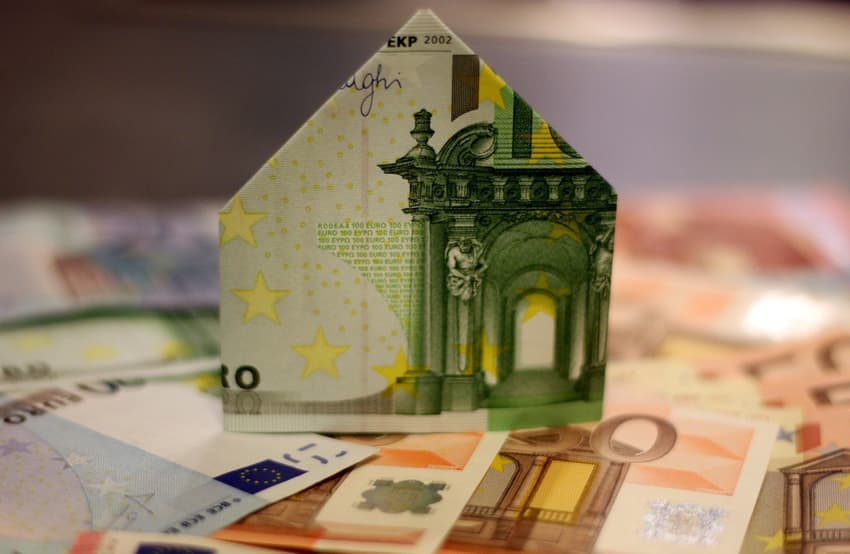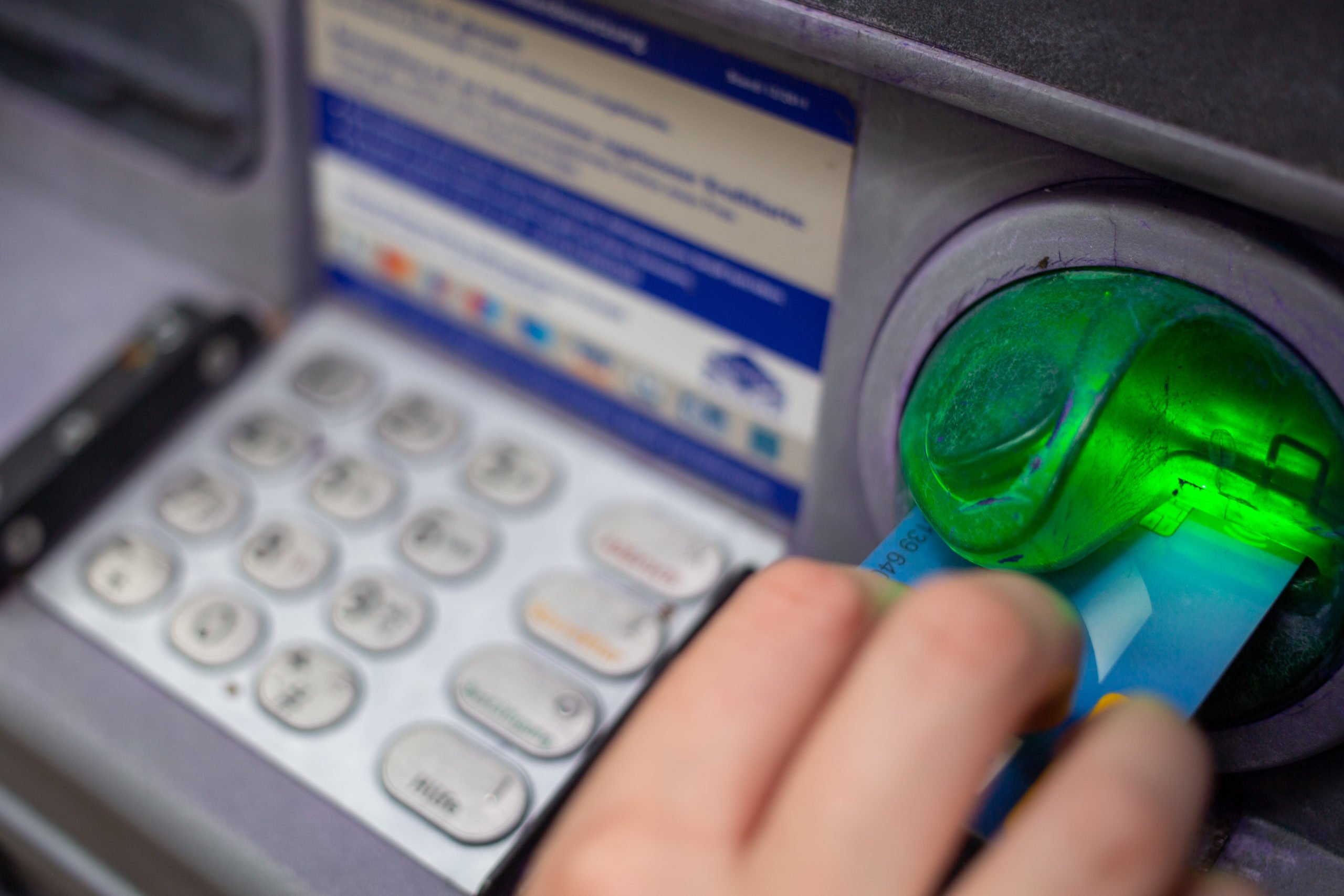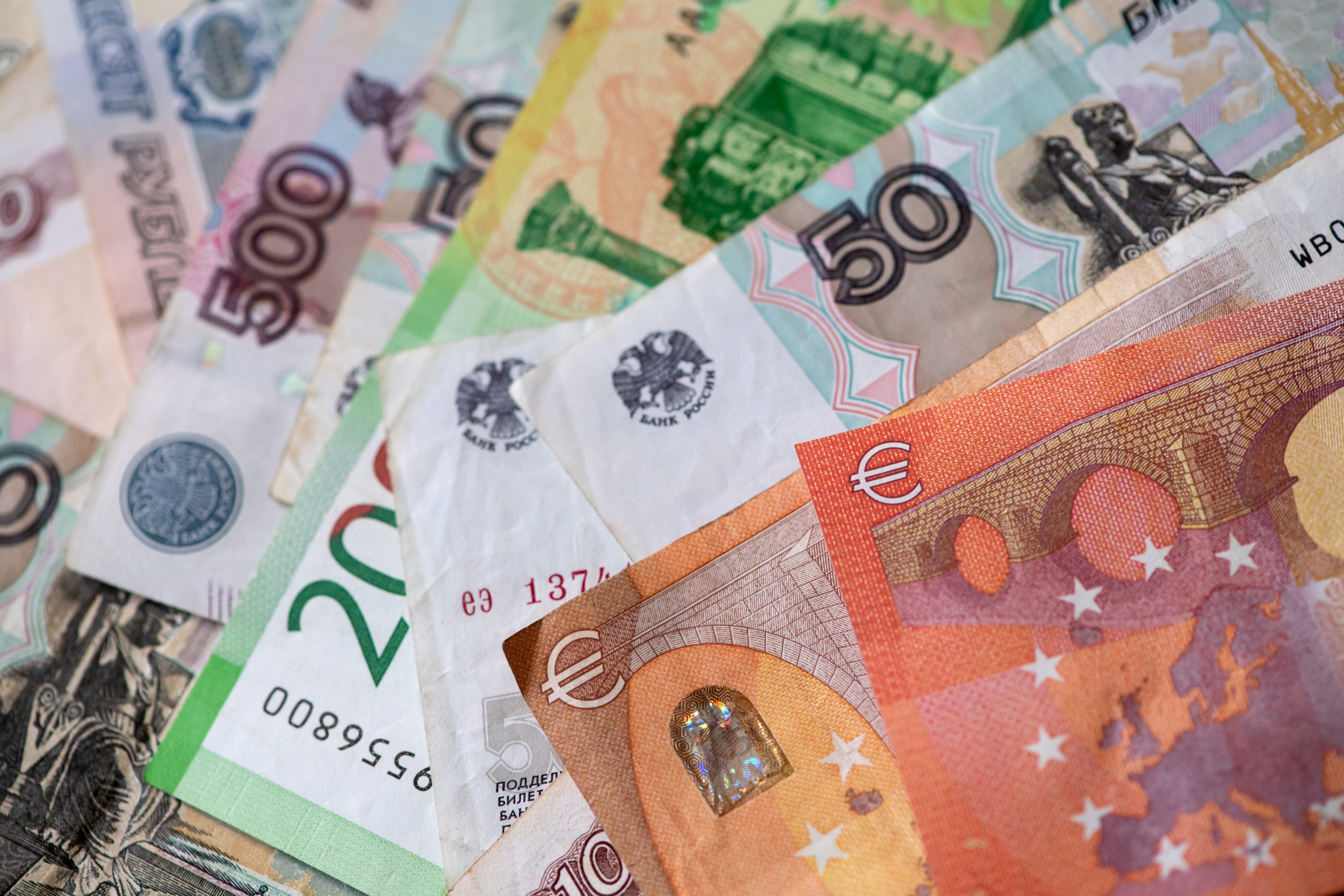Five ways Germany's soaring inflation could affect your life

The cost of living has been sky-rocketing in Germany over the past few months - and experts believe this trend could be set to continue. But what impact could this have on your everyday life and future plans?
According to the latest figures released by the Hans Böckler Stiftung, inflation soared to an unbelievable 7.4 percent in Germany in April, outstripping all previous estimates and hitting a high not seen in four decades. The year before, it had been less than half that figure at 3.1 percent, and in 2020, it was a mere 0.5 percent.
So, aside from the fact that everything seems eye-wateringly expensive all of a sudden, what does this high inflation rate really mean for people's livelihoods, debts and savings? Here are a few things you may notice.
1. You have less spare cash
This may seem like an obvious one, but inflation is all about the cost of living - and high inflation essentially means that everyday things are going to get a lot more expensive. To determine how much prices are going up, economists compile a massive hypothetical basket of goods that reflects the everyday goods and services that consumers have to pay for in their day-to-day lives. This could include the cost of transport like train tickets or renting a car, housing costs and bills, food and drink or consumer products like electronics, toiletries or clothes.
The average increase in prices in the basket is used to determine the rate of inflation - in other words, how much more an average person will have to spend to maintain the same standard of living or buy the same things. At the current rate of inflation, someone will generally be paying 7.4 percent more for the same goods and services in April 2022 as in April 2021. That means that a set of items that cost an average of €100 last year will now cost an average of €107.40. (If you want to get a sense of how much things could cost in five years at the current rate of inflation, this depressing calculator will help you do just that). Since you're unlikely to earn €7.40 more for every €100 you earn, you end up becoming poorer in real terms over time.
READ ALSO: The products getting more expensive and harder to find in Germany
Of course, inflation can impact people slightly differently depending on what items they buy more and less of. For example, a car driver will have to pay significantly more for fuel in 2022 than in 2021, but for public transport users, the cost of a train ticket has actually gone down slightly (and will go down even more in summer). Relying on fossil fuel energy sources exclusively for heating and electricity would have also made things a lot pricier this year, while people with heat pumps or eco-friendly electricity contracts should be much less affected.
Despite the lifestyle differences that can impact how much more you're spending, the bottom line is simple: most people will end up having less disposable income as a result of high inflation, with lower earners taking the hardest hit.
2. You pay more for housing
As The Local has been reporting, an ever increasing number of tenants are signing up for what's known as an Indexmiete, or index rent, which essentially means that rents rise each year in line with inflation. With the current soaring inflation rates, this means that a certain group of renters could see significant increases in their rent.
Others may notice their rental costs rising for a different reason once they get their annual utilities bill and are asked to pay any additional money they owe to the landlord. Since energy costs have risen at such an alarming rate this year, it's likely that most estimates of bills based on last year's prices will fall well short of what's actually owed, which could lead to nasty shocks and a big adjustment of the 'warm rent' (rent and additional costs) for next year.
READ ALSO: EXPLAINED: Why tenants in Germany could see bigger rent increases this year
"Anyone who does not increase their advance payment for ancillary costs will face high additional charges next year," Rolf Buch, CEO of letting agent Vonovia, said in a recent interview with Focus. "For some tenants, this could amount to up to two months' rent."
Of course, home owners aren't exempt from hefty bills - but they do get some consolation. High inflation has been linked to an increase in property places, partly because prices are rising in general and party because buying property is a way to avoid the value of savings getting eroded - which brings us to our next point...
3. Your savings aren't worth as much
Germany is a nation of savers - and placing cash in a bank account is by far their favourite way to do it. At the end of 2020, Germans held a whopping €2.8 trillion in bank accounts, with much of the money they saved in lockdown year being stashed away at their bank.
This may sound great on paper, but unfortunately, high inflation and rock-bottom interest rates tend to mean that the money in these accounts is actually losing value the longer it sits there. Think of it like putting a five euro note under your pillow for ten years. If nobody adds to that five euros, you're not going to be able to buy as much with it when you take it out compared to when you put it under there.

A woman withdraws cash from her bank account. Photo: picture alliance/dpa/dpa-Zentralbild | Fernando Gutierrez-Juarez
Essentially, inflation rates at 7.4 percent, you'd have to find a savings account that could give you at least 7.5 percent interest to stop you losing money. Sadly, interest rates are actually hovering below one percent on most ordinary savings accounts or bank accounts these days.
Unsurprisingly, this can make it increasingly hard to people to save for their old age and retirement - though it's always an option to put your money in investments rather than savings accounts to try and get a better return.
READ ALSO: How to protect your savings against inflation in Germany
4. ... and nor are your debts
On the flip side of seeing savings get eroded, people with debts will essentially see the amount they owe go down as well - especially if the interest rate they're paying on their loan or mortgage is less than the rate inflation.
Essentially, as buying power gets eroded, the debt is worth less over time - which is why even after 25 years of paying interest on a mortgage, you may only really be paying the equivalent of what you borrowed to start with, or even a bit less.
It's this that has made getting on the property ladder such an attractive prospect for people in Germany in recent months, since interest rates are low and inflation is high. However, this trend has sparked a wave of borrowing which some worry could became unsustainable if interest rates were to rise even a little bit. If this happens, Germany's booming property market could prove to be a bubble.
READ ALSO: German central bank could intervene over rising house prices
5. Travelling gets more expensive
If you have savings in another country or need to convert money to travel abroad, you have noticed that inflation isn't good for exchange rates. In fact, inflation tends to devalue a currency by reducing its purchasing power over time. Of course, the high interest rates in Germany wouldn't be solely responsible for this - you'll need to look at the figure for the Eurozone as a whole.

Various foreign currencies lie on a table. Photo: picture alliance/dpa | Sven Hoppe
Currently, the euro has sunk to a low against the British pound not seen since July 2016, and it continues to fall in value against the dollar.
Of course, this is great news if you're earning money in another currency that's strong at the moment or if you have savings in that currency that you want to conver into euros. On the flip side, it's not great news for travelling abroad or trying to converting euros into another currency.
Comments
See Also
According to the latest figures released by the Hans Böckler Stiftung, inflation soared to an unbelievable 7.4 percent in Germany in April, outstripping all previous estimates and hitting a high not seen in four decades. The year before, it had been less than half that figure at 3.1 percent, and in 2020, it was a mere 0.5 percent.
So, aside from the fact that everything seems eye-wateringly expensive all of a sudden, what does this high inflation rate really mean for people's livelihoods, debts and savings? Here are a few things you may notice.
1. You have less spare cash
This may seem like an obvious one, but inflation is all about the cost of living - and high inflation essentially means that everyday things are going to get a lot more expensive. To determine how much prices are going up, economists compile a massive hypothetical basket of goods that reflects the everyday goods and services that consumers have to pay for in their day-to-day lives. This could include the cost of transport like train tickets or renting a car, housing costs and bills, food and drink or consumer products like electronics, toiletries or clothes.
The average increase in prices in the basket is used to determine the rate of inflation - in other words, how much more an average person will have to spend to maintain the same standard of living or buy the same things. At the current rate of inflation, someone will generally be paying 7.4 percent more for the same goods and services in April 2022 as in April 2021. That means that a set of items that cost an average of €100 last year will now cost an average of €107.40. (If you want to get a sense of how much things could cost in five years at the current rate of inflation, this depressing calculator will help you do just that). Since you're unlikely to earn €7.40 more for every €100 you earn, you end up becoming poorer in real terms over time.
READ ALSO: The products getting more expensive and harder to find in Germany
Of course, inflation can impact people slightly differently depending on what items they buy more and less of. For example, a car driver will have to pay significantly more for fuel in 2022 than in 2021, but for public transport users, the cost of a train ticket has actually gone down slightly (and will go down even more in summer). Relying on fossil fuel energy sources exclusively for heating and electricity would have also made things a lot pricier this year, while people with heat pumps or eco-friendly electricity contracts should be much less affected.
Despite the lifestyle differences that can impact how much more you're spending, the bottom line is simple: most people will end up having less disposable income as a result of high inflation, with lower earners taking the hardest hit.
2. You pay more for housing
As The Local has been reporting, an ever increasing number of tenants are signing up for what's known as an Indexmiete, or index rent, which essentially means that rents rise each year in line with inflation. With the current soaring inflation rates, this means that a certain group of renters could see significant increases in their rent.
Others may notice their rental costs rising for a different reason once they get their annual utilities bill and are asked to pay any additional money they owe to the landlord. Since energy costs have risen at such an alarming rate this year, it's likely that most estimates of bills based on last year's prices will fall well short of what's actually owed, which could lead to nasty shocks and a big adjustment of the 'warm rent' (rent and additional costs) for next year.
READ ALSO: EXPLAINED: Why tenants in Germany could see bigger rent increases this year
"Anyone who does not increase their advance payment for ancillary costs will face high additional charges next year," Rolf Buch, CEO of letting agent Vonovia, said in a recent interview with Focus. "For some tenants, this could amount to up to two months' rent."
Of course, home owners aren't exempt from hefty bills - but they do get some consolation. High inflation has been linked to an increase in property places, partly because prices are rising in general and party because buying property is a way to avoid the value of savings getting eroded - which brings us to our next point...
3. Your savings aren't worth as much
Germany is a nation of savers - and placing cash in a bank account is by far their favourite way to do it. At the end of 2020, Germans held a whopping €2.8 trillion in bank accounts, with much of the money they saved in lockdown year being stashed away at their bank.
This may sound great on paper, but unfortunately, high inflation and rock-bottom interest rates tend to mean that the money in these accounts is actually losing value the longer it sits there. Think of it like putting a five euro note under your pillow for ten years. If nobody adds to that five euros, you're not going to be able to buy as much with it when you take it out compared to when you put it under there.

Essentially, inflation rates at 7.4 percent, you'd have to find a savings account that could give you at least 7.5 percent interest to stop you losing money. Sadly, interest rates are actually hovering below one percent on most ordinary savings accounts or bank accounts these days.
Unsurprisingly, this can make it increasingly hard to people to save for their old age and retirement - though it's always an option to put your money in investments rather than savings accounts to try and get a better return.
READ ALSO: How to protect your savings against inflation in Germany
4. ... and nor are your debts
On the flip side of seeing savings get eroded, people with debts will essentially see the amount they owe go down as well - especially if the interest rate they're paying on their loan or mortgage is less than the rate inflation.
Essentially, as buying power gets eroded, the debt is worth less over time - which is why even after 25 years of paying interest on a mortgage, you may only really be paying the equivalent of what you borrowed to start with, or even a bit less.
It's this that has made getting on the property ladder such an attractive prospect for people in Germany in recent months, since interest rates are low and inflation is high. However, this trend has sparked a wave of borrowing which some worry could became unsustainable if interest rates were to rise even a little bit. If this happens, Germany's booming property market could prove to be a bubble.
READ ALSO: German central bank could intervene over rising house prices
5. Travelling gets more expensive
If you have savings in another country or need to convert money to travel abroad, you have noticed that inflation isn't good for exchange rates. In fact, inflation tends to devalue a currency by reducing its purchasing power over time. Of course, the high interest rates in Germany wouldn't be solely responsible for this - you'll need to look at the figure for the Eurozone as a whole.

Currently, the euro has sunk to a low against the British pound not seen since July 2016, and it continues to fall in value against the dollar.
Of course, this is great news if you're earning money in another currency that's strong at the moment or if you have savings in that currency that you want to conver into euros. On the flip side, it's not great news for travelling abroad or trying to converting euros into another currency.
Join the conversation in our comments section below. Share your own views and experience and if you have a question or suggestion for our journalists then email us at [email protected].
Please keep comments civil, constructive and on topic – and make sure to read our terms of use before getting involved.
Please log in here to leave a comment.